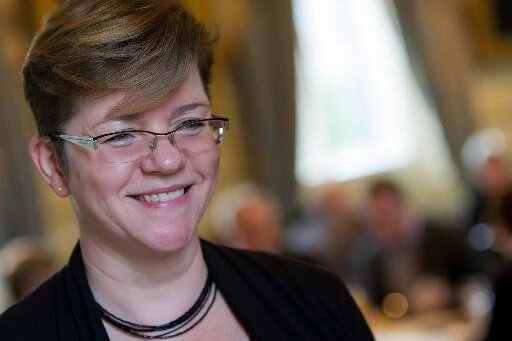The real issues 'are being blurred'

Chris Banks was interviewed as part of Research Information's report The Scholarly Publishing Research Cycle 2018
What do you see as the biggest challenges in scholarly publishing today?
A mixture of cost, inaccessibility, and the academic reward mechanism which has grown up around particular modes of scholarly communication. Cost is being driven by two factors: the increasing amount of atomised research that researchers are publishing with subscription journals; and the continued above inflation price increases, particularly amongst some of the very largest publishers.
The challenge of inaccessibility is a very significant one. There is no one established model for open access, there’s still a lot of innovation going on and there are a number of models emerging. We haven’t yet found a mechanism for supporting the learned society journals in particular, who therefore become conflicted because on one hand they are benefiting from some of the monopolistic behaviours around copyright transfer, but on the other hand are using the funds that are generated as part of the publishing business to support their learned society activities. If you end up in a pay-to-publish open access world, that immediately disenfranchises the very people who can’t access the current content in the first place.
The academic reward mechanisms, whereby you have journal title as a proxy of quality, means publishing in high-impact journals is actively rewarded and encouraged and used as a short cut to determine career paths and promotion. There’s a perverse incentive to go after being published in certain places, rather than in making the outputs of publicly funded research available to a much broader community.
What can libraries do to help overcome some of these challenges?
We’ve moved to an era where we’re no longer simply subscribing to content, we’re purchasing a suite of services on behalf of our academics in our institution, of which access to content is part. Looking much more broadly at how we negotiate for that suite of services, and what it does and doesn’t include, is one of the things that we can do and the recent publication of Plan-S focuses on that a little bit, because it talks about access and copyright. We need to be in the business of negotiating for a different kind of package of services, but more broadly we need to be able to incentivise and support those who wish to publish open access. We need to raise awareness in our academics about the impact of some of their publishing decisions.
We also need to be much clearer on the ways in which we will have much more nuanced assessment of academic contributions. At the moment it’s very weighted towards the academic journal output, and it’s only one relatively small part of the broader sector contributions by the academic community.
What can researchers do to overcome the challenges?
Broader awareness and discussion of the issues is important among the research community, but that becomes challenging because researchers are very time pressured. There’s a lack of awareness about the implications of the assignment of copyright and reuse rights; if it’s being published in a particular journal, assignment will be signed almost without a blink of the eye.
We have some very good ambassadors for open access. We also have a huge challenge, which is that ‘open access’ are two words that are used to mean a number of different things. At one end we’ve got open access as a mechanism to bring down the big bad monopolistic publishers and on the other end it’s about the public good of freeing up public research for the accessibility of all. The real issues are somewhere blurred in the middle of that, and they vary according to discipline.
What can the publishers do to help overcome the challenges?
The way Plan-S is written feels as though a group of funders who have hoped that by encouraging and incentivising openness among academics and seeking to support publishers in their transition, have found themselves frustrated that there’s very little sign of that transition taking place. It feels as though there’s been a kind of slapping of hands on the table and saying “OK everybody, this is just not good enough. We’re clearly needing to come down much harder on this issue because people are not behaving nicely and honourably.” The document oozes frustration that reasonable discussion has not taken place, and that to a certain extent we’ve fuelled another kind of profit rather than fuelling openness.
The success of Plan-S will probably rest on the number of additional funders that are persuaded on board, because one of the reasons why we’ve had such challenges with open access is that different countries, and different funders have taken a different approach to what the solution ought to be. The challenge immediately becomes that you could, at its worst, create a divide between the global north and the global south if you have academics in institutions who simply don’t have the funds to pay the sort of article processing charges that the UK has seen. You create a different problem.
Chris Banks is assistant provost (space) and directory of library services at Imperial College London






